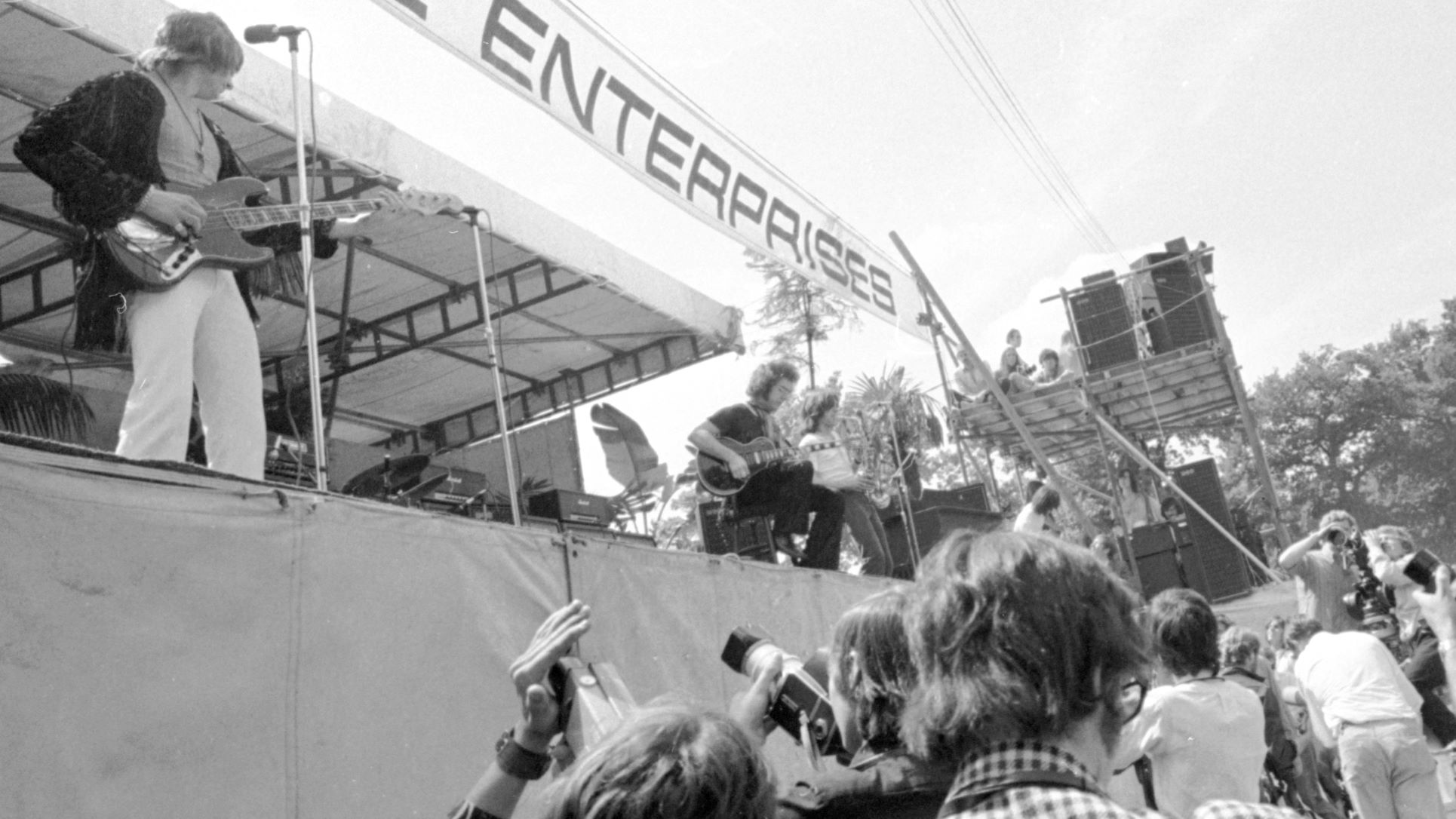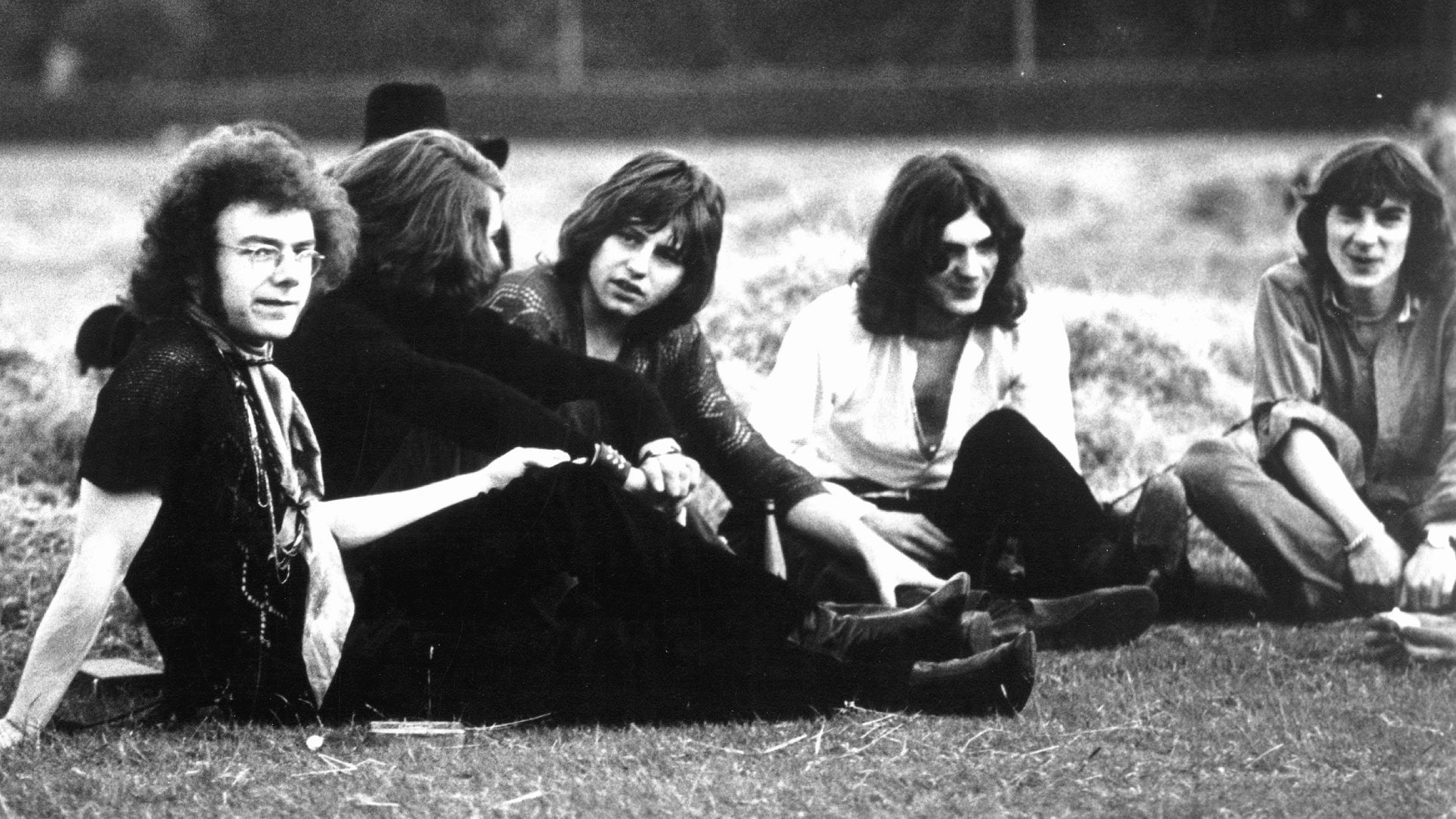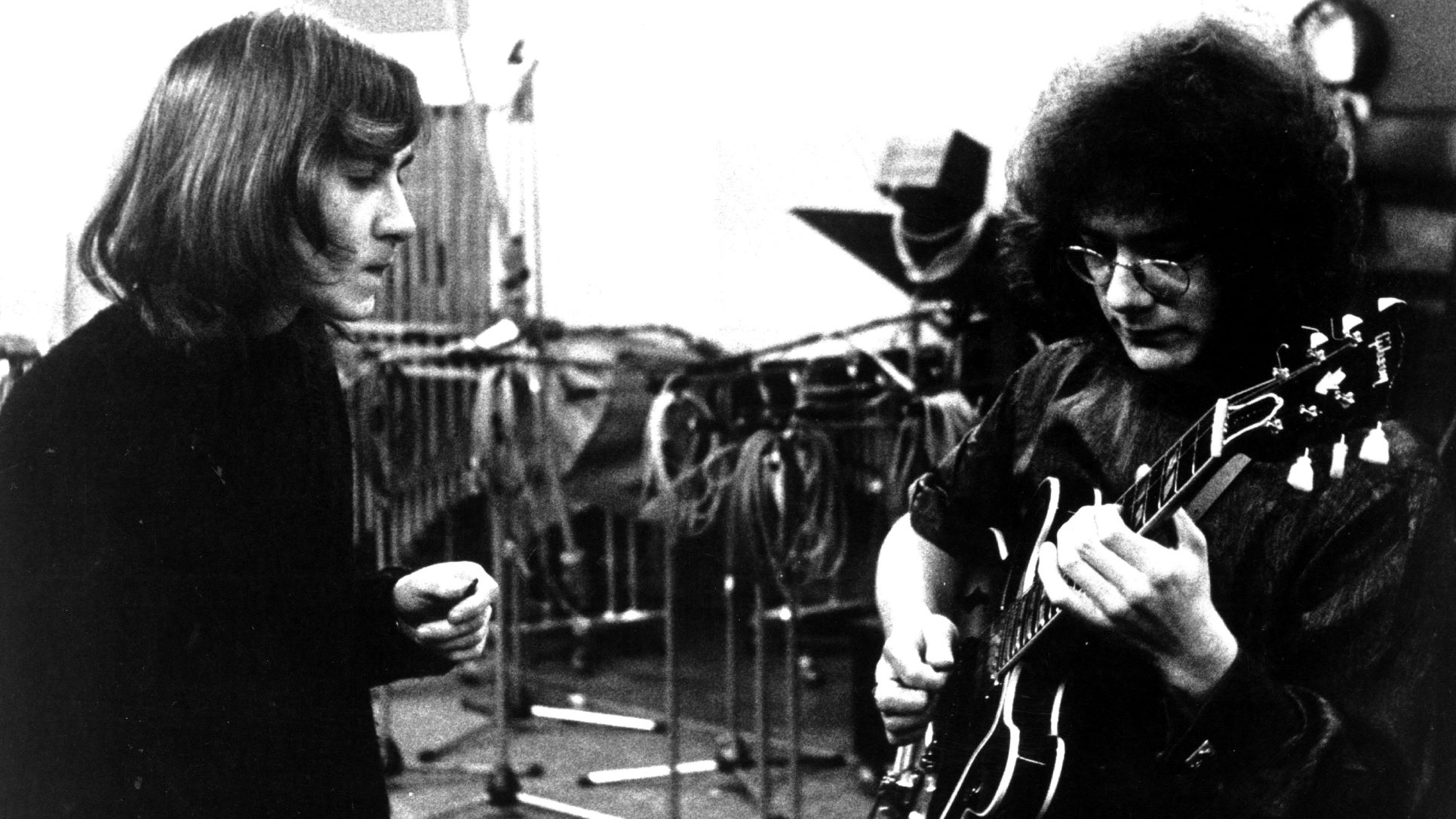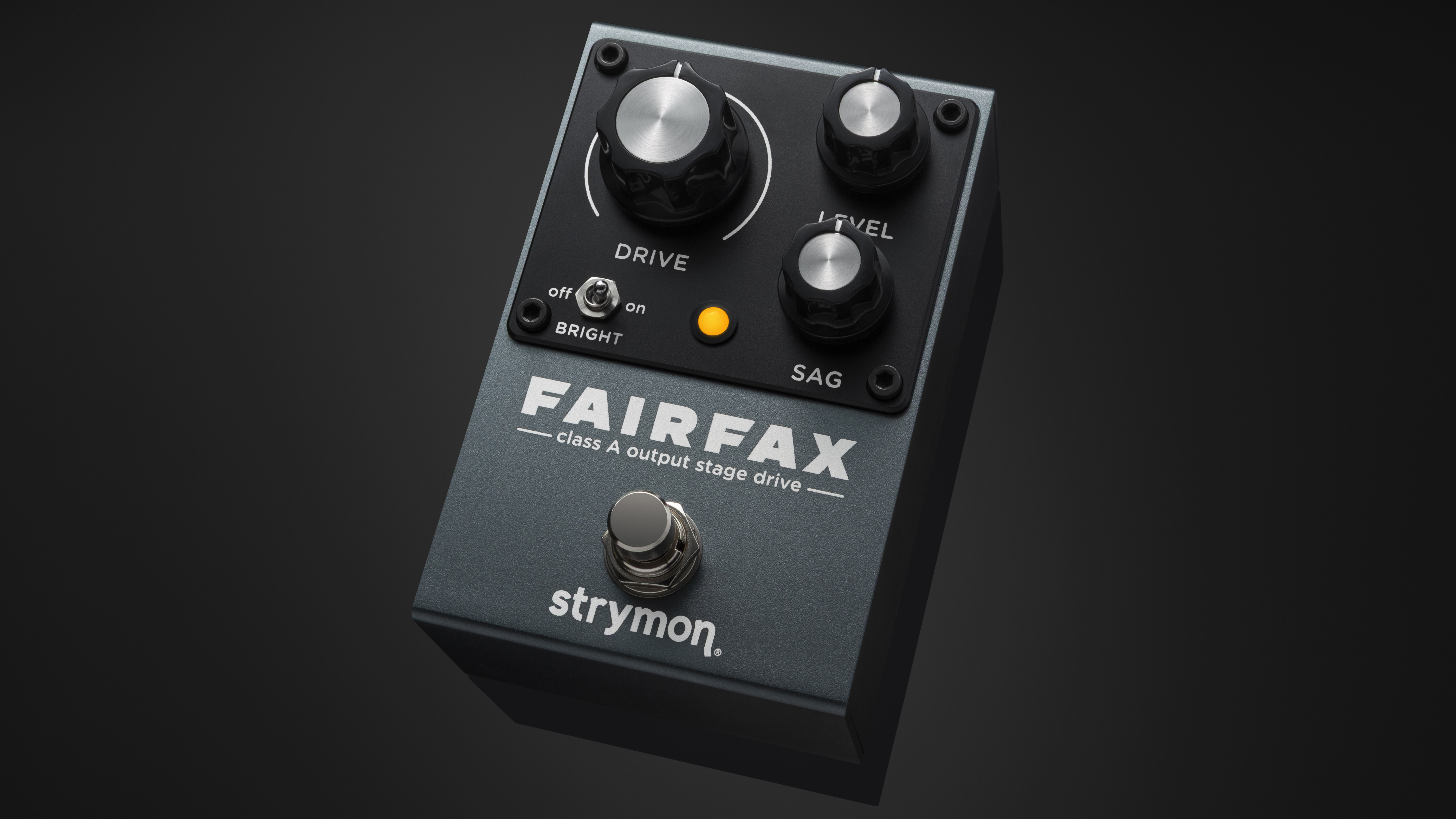Watch King Crimson’s Frenzied Performance of “21st Century Schizoid Man” at ‘The Stones in the Park’
This breakthrough gig launched Robert Fripp onto the international stage in 1969.

In July 1969, a free outdoor festival was hosted in London’s Hyde Park. This now legendary event – The Stones in the Park – is notable for several reasons. While proceedings were somewhat overshadowed by the death of Brian Jones just three days prior, it was The Rolling Stones’ first public concert in over two years and their first show with newly recruited guitarist Mick Taylor.
It was also the gig that launched supporting act King Crimson onto the international stage.
One of several bands lined up to support the rock ‘n’ roll titans, King Crimson secured their slot having created a stir in London’s live music scene. At this point, the band hadn’t an album to their name, but this high-profile appearance along with subsequent touring helped their debut long-player, In the Court of the Crimson King, become a near instantaneous smash when it was released in October '69.

Speaking about the impact of King Crimson’s The Stones in the Park performance guitarist Robert Fripp recalls, “We were the unknown band of the day… There were many people who had come from Europe and the United States to see The Rolling Stones return to live performance. And they went back and said, ‘There’s a band you must see. A new band; it’s King Crimson.’ So from one point of view this was a move to the international stage.
“The key to the success of King Crimson and these young men was the power of the music. Music lent over and took those young men into its confidence. But they didn’t have a sufficiently developed personal discipline to handle the current. Fuses blew and the band broke up in December in San Francisco, 1969, having been together for 11 months and 1 day… It broke my heart.”

Although the album recording of “21st Century Schizoid Man” features some of prog rock’s finest electric guitar moments, Fripp told GP in 1974, “If you listen to King Crimson's records you realize that the guitar playing has always been one of the smallest things that the band does. One of the reasons for that is I've always been more happy in developing the other musicians; developing them as players. So I guess my function has been more of a general organizer of the situation. However, at the moment I'm more interested in playing guitar, and I find it most frustrating that I can't make the other players in the band take as much interest in my playing as I do in theirs.”
In the same interview, Fripp reveals how he manages to achieve his incredible tone, including some insight into which pedals he was using at that time. “On stage I use three pedals on a pedal board: A volume pedal, fuzz-tone, and wah-wah,” he says.
All the latest guitar news, interviews, lessons, reviews, deals and more, direct to your inbox!
“The fuzz-tone and wah-wah are pretty rubbishy. I'm not sure what type of wah-wah it is. The best fuzz-box to use is a Burns Buzzaround which they discontinued making in England about six years ago. I have two of them, but they're not at the moment attached to my pedalboard.”
Click here to purchase King Crimson's In the Court of the Crimson King
Rod Brakes is a music journalist with an expertise in guitars. Having spent many years at the coalface as a guitar dealer and tech, Rod's more recent work as a writer covering artists, industry pros and gear includes contributions for leading publications and websites such as Guitarist, Total Guitar, Guitar World, Guitar Player and MusicRadar in addition to specialist music books, blogs and social media. He is also a lifelong musician.

